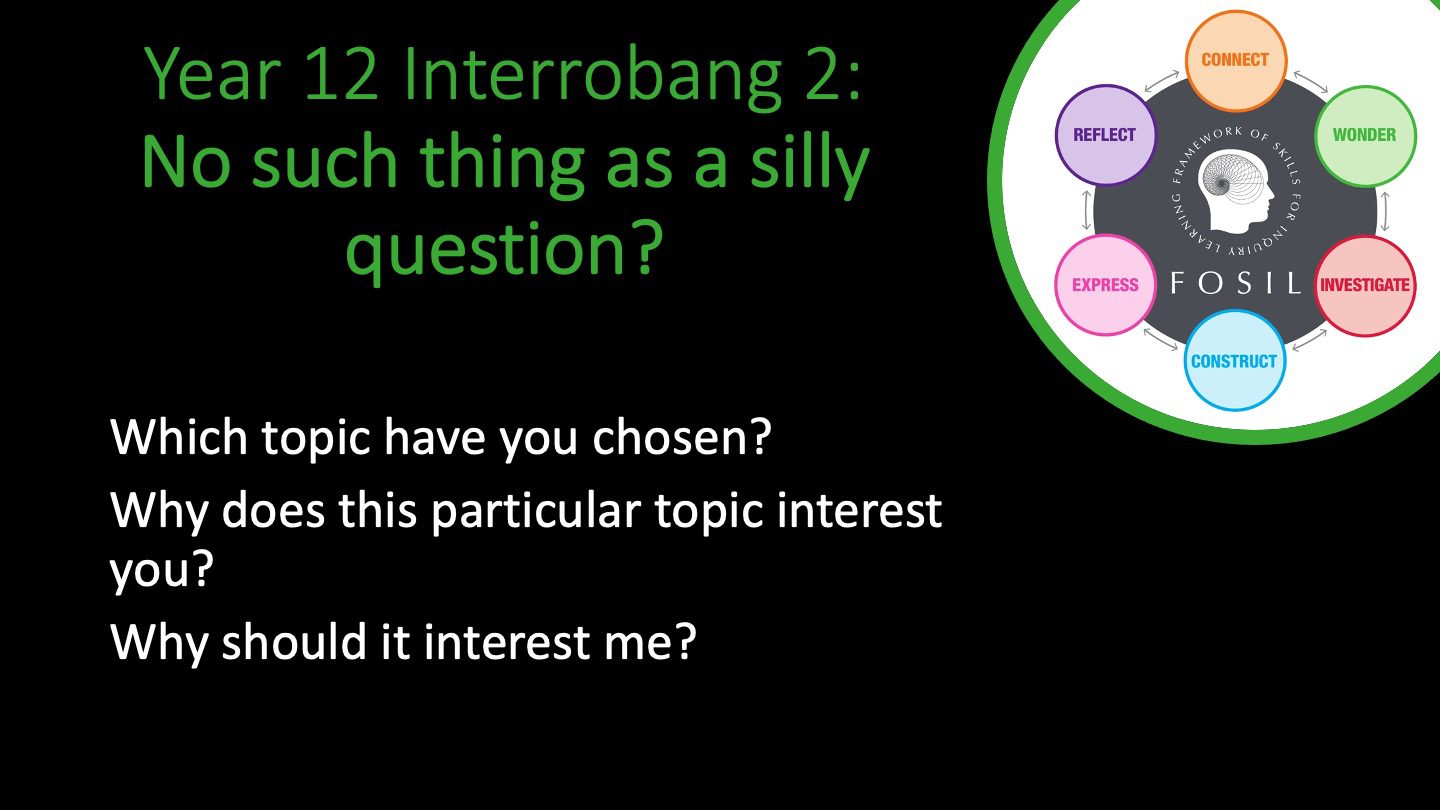Session 2: No such thing as a silly question?
You can download the presentation I used for this session here.

Asking good inquiry questions is hard! Students will often start with easy factual questions (with copy and paste answers) and need to be encouraged to broaden these out into more debatable questions. In this case this was a very short inquiry, which for some would lead to an EPQ, so the idea was to help every student to understand the difference between questions with easy factual answers and more complex and interesting questions and to encourage them to start asking the latter. There was no expectation that they would reach ‘answers’ by the end of the inquiry, but the hope was that their curiosity would be stimulated to want to investigate further.
For homework they needed to come up with a list of questions with easy factual answers and a list that were more matters of opinion relating to their topic, choose a question they were interested in and continue their investigation (using an Investigative Journal).
Focus skills for this session:
- Wonder: Creates questions to lead to basic information and, in addition, to information that is more critical, complex, and diverse in perspectives
- Investigate: Takes notes to answer questions by recording key phrases or simple facts, paraphrasing, summarizing, or selecting short segments to quote from multiple and diverse sources
- Investigate: Reflects on notes (perhaps in a reflection column) by asking questions, recording own opinions, challenging, and noting the importance of the idea for the final product
- Investigate: Uses organizational features of electronic books, databases, online articles and websites (e.g., menu bars, tabs, buttons, links, sidebars, chapter titles, headings and subheadings, abstracts, pull quotes, visuals, boxed information) to locate information to answer research questions [and specifically learns to access our Subscription Databases]